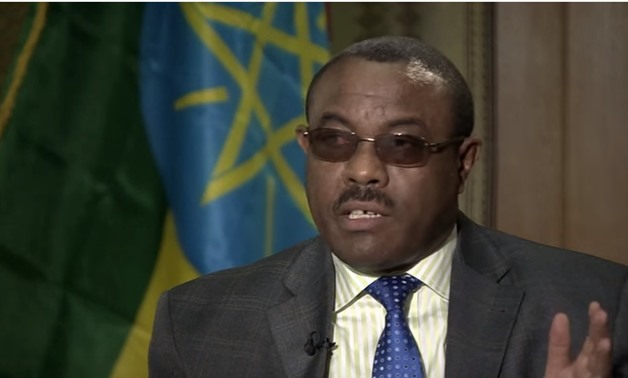
Ethiopian Prime Minister Haili Miriam Desaline, August 20, 2012 – Via Wikipedia
CAIRO – 28 November 2017: Ethiopian Ambassador to Egypt Eyi Athacaslasi Amedi announced that Ethiopian Prime Minister Haili Miriam Desaline will deliver a speech in the Egyptian Parliament during his visit to Egypt in December.
The Ethiopian prime minister met with the chairman of the African Affairs Committee on Monday, who said that the visit aims to discuss cooperation between the Ethiopian and Egyptian parliaments.
The chairman added that during his meeting with the Ethiopian ambassador, they discussed ways to build trust and enhance cooperation between the two countries.
The ambassador stressed that Ethiopia is keen to continue negotiations with Egypt concerning the Renaissance Dam project.
“Ethiopia is keen to resume negotiations with Egypt and to continue the construction of the Renaissance Dam while taking the significant harm of the dam’s effect on Egypt’s share of the Nile water into account,” noted the chairman.
On November 12, the last meeting of the Tripartite National Committee on the Renaissance Dam (TNCRD), which was hosted in Cairo, concluded without reaching an agreement regarding the guidelines suggested by a study on the dam’s potential effects on the Nile Basin states, according to Minister of Irrigation and Water Resources Mohamed Abdel-Aati.
He issued a statement shortly after the meeting explaining that despite Egypt’s agreement with the study’s guidelines, the other two parties of the TNCRD did not express consensus and called for amendments.
A report based on the study presents guidelines by which Ethiopia can fill its reservoir without harming the water flow into Egypt and Sudan. The $4 billion dam is being constructed on the Blue Nile with a capacity of 74 billion cubic meters, and is expected to generate up to 6,000 megawatts of power.
Since May 2011, Cairo has voiced its concern over how the dam can reduce the country’s annual share of more than 56 billion cubic meters of Nile water. Egypt’s average water per-capita is expected to drop from 663 cubic meters per year to 582 cubic meters by 2025, according to the Central Agency for Public Mobilization and Statistics (CAPMAS). Addis Ababa, however, claimed that the dam is necessary for Ethiopia’s development and will not harm downstream countries.
Comments
Leave a Comment